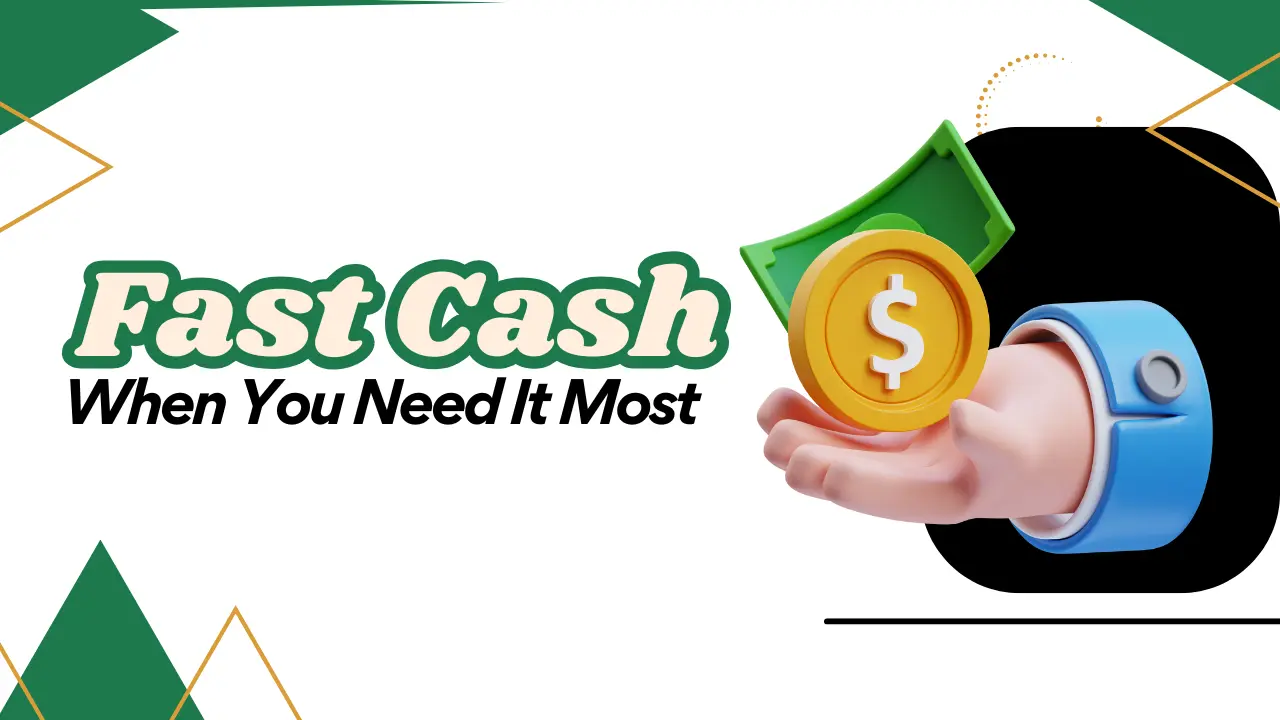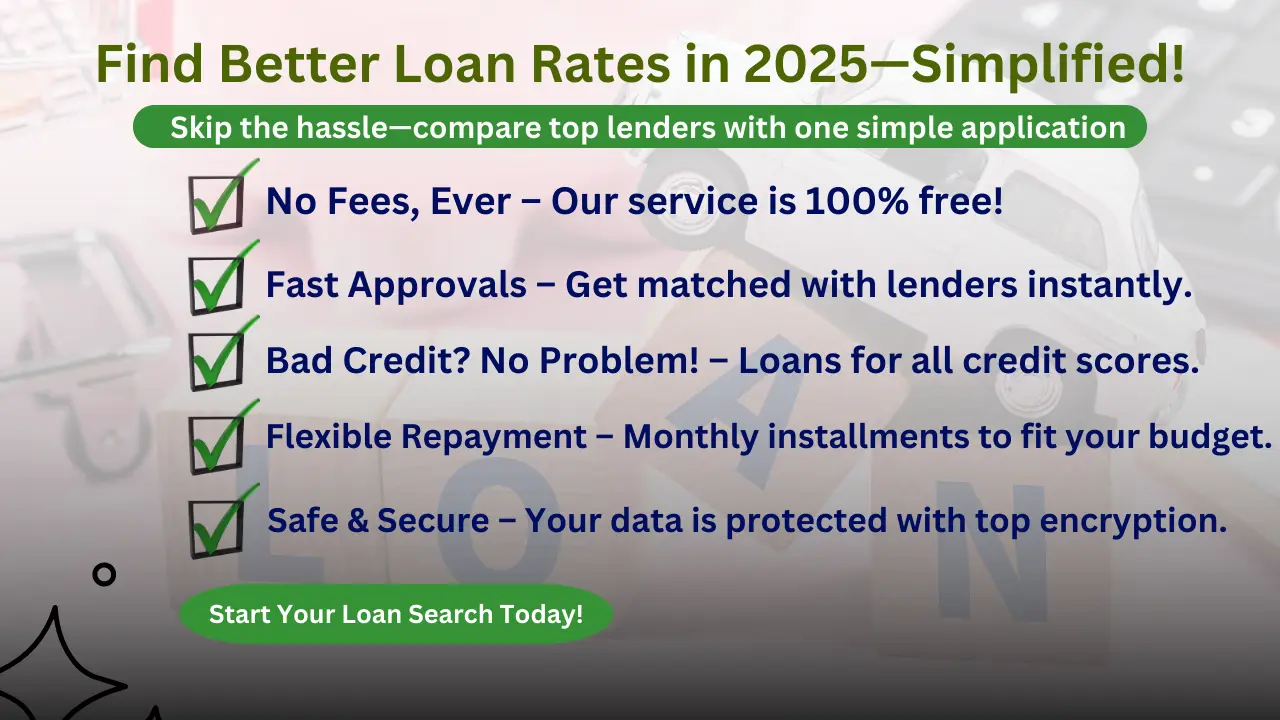Introduction
In moments of financial urgency, cash advance loans can offer fast relief. Utilizing access to fast money can mean the difference between equilibrium and recession, or when you're struggling with an unforeseen health care bill, auto repair, or utility interruption. While these loans have their uses, they are not universally applicable. You can make wise financial decisions if you know how cash advance loans operate and when you should use them at all times.
What Are Cash Advance Loans?
Cash advance loans—often known as payday loans, instant cash advances, or fast cash loans—are short-term lending solutions designed to cover emergency expenses. These loans typically offer small amounts (ranging from $100 to $5,000) with quick loan approval, sometimes within minutes or hours.
Unlike traditional loans, cash advance loans are made for you to be quick and get funding as soon as possible, as per your requirement. The speed and convenience of cash advance loans from Best Rate Check Cash Advances are appealing; however, it is important to be aware of the loan fees and interest rates, which can be significantly higher than other types of credit.
How Cash Advance Loans Work
Here’s a simplified breakdown of how cash advance loans work:
- Application—By presenting identification and evidence of earnings, as well as an account with a banking institution, consumers may submit an application in person or online.
- Approval—Even people with inadequate credit can apply for financing because numerous lenders provide immediate authorization with few credit inquiries.
- Funding—Once approved, the money is transferred straight into the account you created, frequently in just a few days.
- Repayment—Following your next paycheck, the entire loan amount, in addition to fees and interest, is normally due in roughly two to four weeks.
The ease and rapid turnaround of catastrophe funding are its main draws, but they are frequently expensive.
Understanding the Costs: Loan Fees and Interest Rates
The overall cost of financing serves as one of the most crucial variables to take into account when assessing quick cash funding. These loans have interest rates that range from 5.99% to 35.99% annualized percentage rates (APRs). Furthermore, interest rates and financing costs differ depending on the lender and state laws.
For example, the total price, including interest, of a $1,000 loan with a repayment period of twelve months is going to be $1,134.72, with an annual percentage rate of 29.82%. interest rates ranging from 5.99% to 35.99% annual percentage rate. For eligible customers, the repayment periods can vary from 61 days to a maximum of 72 months.
Best Cash Advance Loans Online: What to Look For
Finding the most effective cash advance loans online requires comparing creditors until you determine that a cash advance is the best option to earn yourself. Below are some things that one ought to be aware of:
- Transparent fees and repayment terms
- No hidden charges
- Clear borrowing limits
- Strong customer reviews
- Secure online platforms
Use reliable websites like Best Rate Check once conducting your online research so you can contrast possibilities for loans with one another in order to make an informed choice.
When Should You Use a Cash Advance Loan for Emergency Expenses?
Cash advance loans should be considered only for true emergencies where no other funding options are available. Here are some acceptable situations:
- Unexpected medical bills
- Emergency car repairs
- Last-minute travel for family emergencies
- Avoiding utility shutoffs or eviction
But it's better to think about options like online installment loans that offer more time to pay back and frequently lower annual percentage rates if your financial gap is persistent or exceeds a few hundred dollars.
Risks of Cash Advance Loans
Cash advance loans have associated hazards regardless of the benefits they provide. These consist of:
- High fees and short repayment windows
- Debt cycle risk—where borrowers repeatedly take out new loans to pay off old ones
- Limited borrowing amounts, which may not cover larger emergencies
- Potential overdraft fees if the lender withdraws from your bank account automatically
It is crucial to determine how much immediate relief justifies the future cost before registering.
Safer Alternatives to Cash Advance Loans
If you’re hesitant about the risks, consider these safer alternatives:
- Personal installment loans: These offer higher borrowing limits and more manageable repayment plans.
- Borrowing from friends/family: If you have a support system, a small personal loan from someone you trust can save you fees.
- Credit union small-dollar loans: Many offer emergency loans at reasonable rates for members.
- Credit card cash advances: While still costly, these can sometimes be cheaper than payday advances.
Tips for Responsible Borrowing
If you choose to move forward with a quick money loan, keep these tips in mind:
- Only borrow what you can repay on time without rolling over the loan.
- Read all terms carefully, including fine print on fees and repayment schedules.
- Avoid automatic rollovers, which can trap you in a cycle of debt.
- Create a repayment plan that fits your income.
Being proactive and informed is the best way to avoid financial pitfalls.
Final Thoughts: Are Cash Advance Loans Right for You?
When used sensibly and carefully, cash advance loans can be a beneficial instrument. They provide a means of filling temporary gaping pockets for those who have little access to conventional credit as a whole. They may be riskier, though, particularly if taken frequently along with a clear repayment plan.
Ask yourself, "Should I utilize a cash advance loan over critical expenditures?" before taking out a loan. This could prove the best course of action if the circumstances are immediate and unavoidable, and if you please have a well-defined repayment plan.
As per your quick need for funding, always explore a trustworthy option. So you can get the best from all of them, as affordable and suitable according to your situation. You can check our guides regarding credit scores, loans, and comparison of installment loans online to find a suitable loan that fits your emergency crisis.
A quick money loan is a high-interest, temporary loan intended to assist you in paying for unforeseen costs such as utility disconnects, automobile maintenance, or healthcare expenses. It gives you instant possession of modest sums of funds, usually $100 to $5,000, and typically pays you back on your subsequent paycheck.
Quick application procedures, few inquiries regarding credit, and swift funding—often within 24 hours are all features of quick payday financing. Within two to four weeks, typically before they get their next paycheck, consumers are required to repay their loan balance plus fees and interest.
Annual percentage rates (APRs) for cash advance loans can range from 5.99% to 35.99%. Government regulations, along with fees, differ, and the overall cost of reimbursement may be much greater than that of conventional loans.
Indeed. High monthly payments, brief payback schedules, and the possibility of becoming indebted in the event that the loan is rolled over are among the risks. Additionally, clients ought to stay wary of electronic withdrawal penalties for overdrafts.
Many financiers provide selections and approvals in a matter of moments. The bank account you have usually receives financing within a few minutes to a full working day.
Cash advance loans are available to people with bad credit histories because a large number of virtual lenders accept applicants with low or inadequate credit histories. Additional taxes and higher interest rates are frequently associated with this, though.



